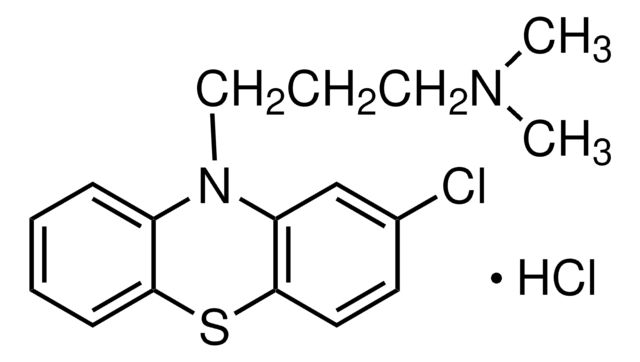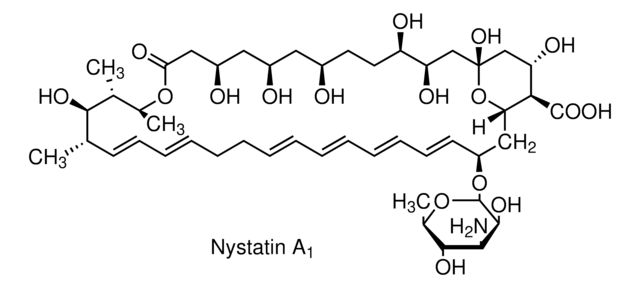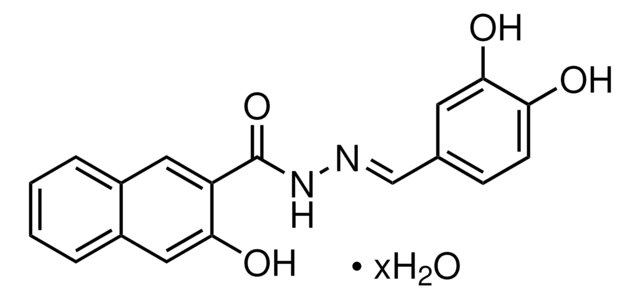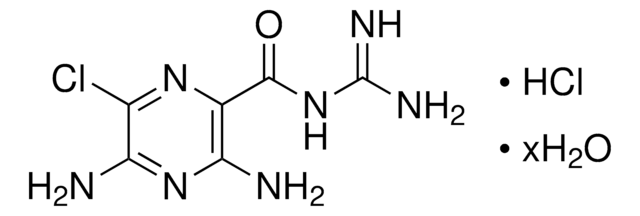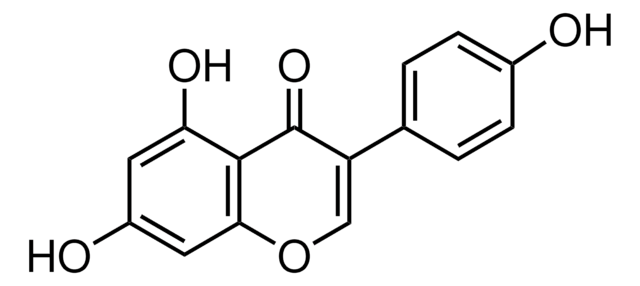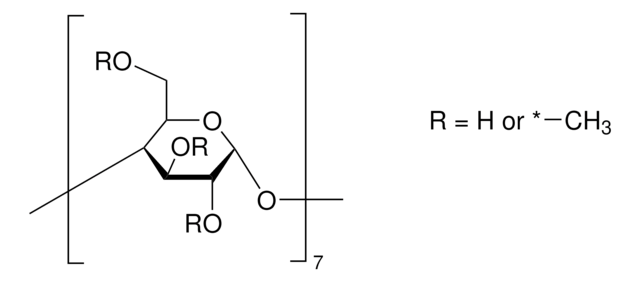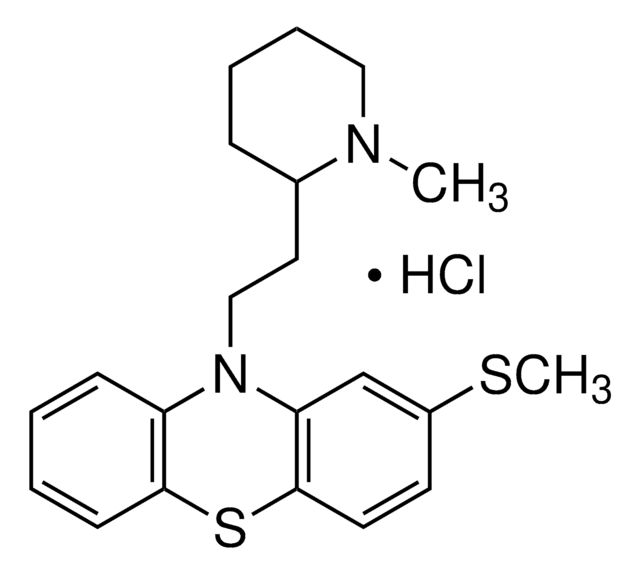C8138
Chlorpromazine hydrochloride
≥98% (TLC), powder, D2 dopamine receptor antagonist
Synonym(s):
2-Chloro-10-(3-dimethylaminopropyl)phenothiazine hydrochloride, CPZ, Largactil
About This Item
Recommended Products
Product Name
Chlorpromazine hydrochloride, ≥98% (TLC)
Assay
≥98% (TLC)
form
powder
mp
194-196 °C
solubility
water: 50 mg/mL
originator
GlaxoSmithKline
SMILES string
Cl[H].CN(C)CCCN1c2ccccc2Sc3ccc(Cl)cc13
InChI
1S/C17H19ClN2S.ClH/c1-19(2)10-5-11-20-14-6-3-4-7-16(14)21-17-9-8-13(18)12-15(17)20;/h3-4,6-9,12H,5,10-11H2,1-2H3;1H
InChI key
FBSMERQALIEGJT-UHFFFAOYSA-N
Gene Information
human ... DRD2(1813) , DRD3(1814) , DRD4(1815) , HRH1(3269) , HTR2A(3356)
Looking for similar products? Visit Product Comparison Guide
Application
- as an antagonists for calmodulin kinase
- as a medium supplement to test its cytotoxic effects in human lung microvascular endothelial cells (HMVEC-L)
- as an inhibitor of clathrin-mediated endocytosis in RAW 264.7 cells
Biochem/physiol Actions
Features and Benefits
Signal Word
Danger
Hazard Statements
Precautionary Statements
Hazard Classifications
Acute Tox. 1 Inhalation - Acute Tox. 3 Oral
Storage Class Code
6.1A - Combustible acute toxic Cat. 1 and 2 / very toxic hazardous materials
WGK
WGK 3
Flash Point(F)
Not applicable
Flash Point(C)
Not applicable
Personal Protective Equipment
Choose from one of the most recent versions:
Already Own This Product?
Find documentation for the products that you have recently purchased in the Document Library.
Customers Also Viewed
Our team of scientists has experience in all areas of research including Life Science, Material Science, Chemical Synthesis, Chromatography, Analytical and many others.
Contact Technical Service